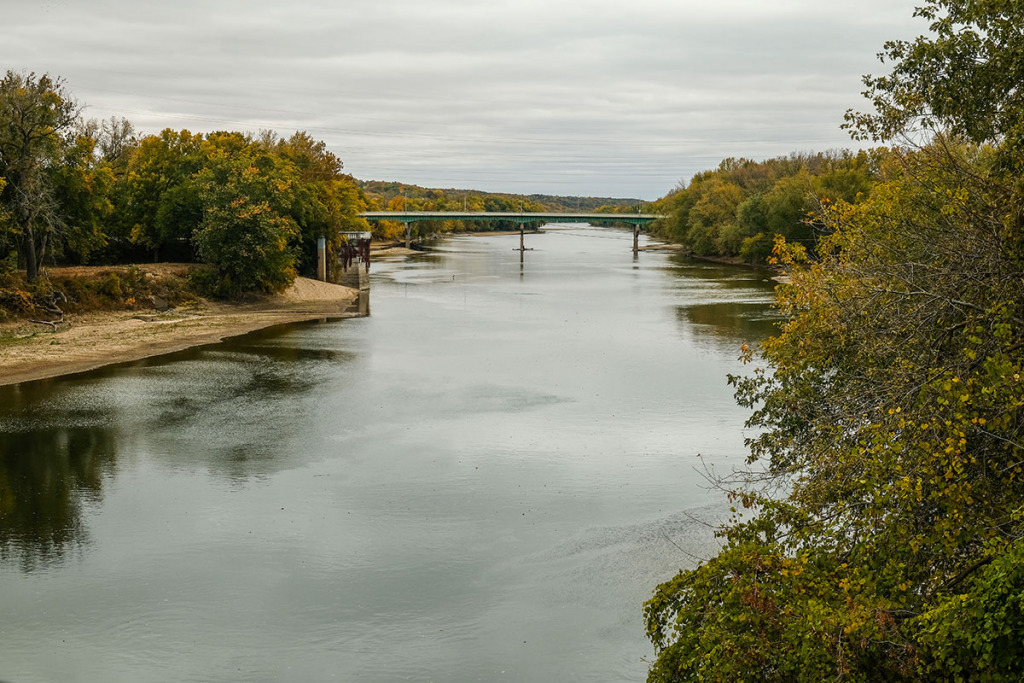Subscriber Benefit
As a subscriber you can listen to articles at work, in the car, or while you work out. Subscribe NowThe water questions related to the LEAP Research and Innovation District in Boone County signaled to Indiana lawmakers last year that they could no longer take a backseat on water management policy. And so this session, two Republican senators say they will file legislation to add more oversight to a process that has traditionally been lightly regulated.
Sen. Eric Koch of Bedford plans to file a bill that creates a permitting process for projects that move water from one area of the state to another. Senate Republicans have made that bill a top caucus priority. And Sen. Spencer Deery of West Lafayette is proposing a two-year legislative task force to study water regulation and a moratorium on Wabash River pipeline projects in the meantime.
“Water is no longer boring in our state,” Deery told IBJ. “There’s a significant recognition that our situation is not ideal—having next to no regulations for large water transfers.”
The 2025 legislative session kicked off Wednesday. The bills are expected to be assigned to the Senate Utilities Committee, which Koch chairs.
For the past two years, the LEAP District in Lebanon has sparked debate about how the state manages its water supply. (LEAP stands for Limitless Exploration/Advanced Pace.) The state’s ambitious economic development district seeks to land more advanced manufacturing businesses, such as microelectronics and life sciences, which tend to be water-intensive.
LEAP requires outside water sources because Boone County doesn’t have sufficient resources to support long-term plans for the 9,000-acre campus. But state officials say the wider region doesn’t have a water shortage.
Thus, state officials have considered at least two water infrastructure projects—a 35-mile Wabash River aquifer pipeline and an extension of the Citizens Energy system—to help solve the problem. The pipeline project remains in the discussion phase, in part because it would transfer water from water basin to another. The state has approved funding to help underwrite the Citizens extension.
New water withdrawal permits
Koch’s legislation, which will be filed as Senate Bill 4, would require the leaders of projects that will move significant amounts of water from one water basin in the state to another to obtain a permit from the Indiana Department of Natural Resources. A water basin is the region that drains into a common outlet, such as a reservoir or river.
Moving a long distance within a water basin—such as from an area that has an abundant amount of water to a drier area—would also require a permit under the legislation, which is expected to be filed next week.
“What our regional water studies are showing us is that supply and demand now into the future are pretty much in balance so long as we properly manage it,” Koch told IBJ. “When you remove large quantities of water from one basin and it’s not replenished, then issues can arise.”
Koch said a key characteristic of the bill is that the regulation will be focused around the state’s 10 watersheds instead of municipal or county lines.
The permitting process would require an application and a review period, Koch said. The bill’s language will also specify timetables for each step, including final approval.
Those who receive permits would have to request recertification every few years to ensure compliance, he said.
Hitting pause to study
Deery filed Senate Bill 256 to create a two-year task force to study water regulation with the end goal of creating new legislative proposals. Paired with it is a moratorium to limit significant water withdrawal projects and pipelines that would transfer water out of the Wabash region—where his district is located—for two years.
He acknowledged the potential of moving water from the Wabash River basin to LEAP does not feel as imminent as it did last year. “We have a little bit more time to get this right and have some serious conversations about what should our state water regulations look like,” he said, “especially in an era when we’re trying to recruit water-intensive users.”
Deery sees his bill as a key step in creating state water policy about withdrawals. But he said he won’t object if another lawmaker’s legislation emerges as a serious solution.
“I wanted to create the process and systems to get us to the right answer,” he said.
Please enable JavaScript to view this content.


Gotta start the discussion somewhere, this at least begins it.
I’m still not convinced the consultant studies have really proven good management is the only answer. Who manages the managers? Which company or political jurisdiction will be truthful and responsible for their proper management?
Yes and yes! Our natural resources need both of these bills passed. The DNR should have been involved from day one but the power that be control most of that.